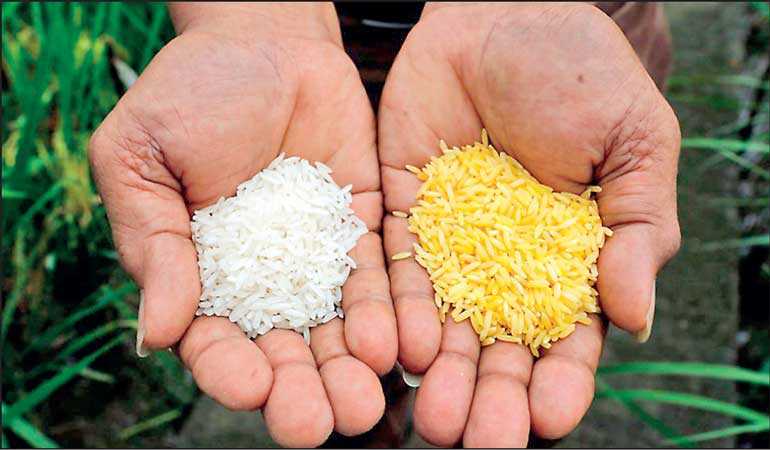Tuesday Feb 17, 2026
Tuesday Feb 17, 2026
Friday, 20 December 2019 00:00 - - {{hitsCtrl.values.hits}}

After rigorous biosafety assessment, Golden Rice “has been found to be as safe as conventional rice”, the Philippine Department of Agriculture Bureau of Plant Industry stated.
The biosafety permit, addressed to the Philippine Rice Research Institute (PhilRice) and International Rice Research Institute (IRRI), details the approval of GR2E Golden Rice for direct use as food and feed or for processing (FFP).
PhilRice Executive Director Dr. John de Leon welcomed the positive regulatory decision.
“With this FFP approval, we bring forward a very accessible solution to our country’s problem on Vitamin A deficiency that’s affecting many of our preschool children and pregnant women,” he said.
Despite the success of public health interventions like oral supplementation, complementary feeding and nutrition education, Vitamin A deficiency (VAD) among children aged six months to five years increased from 15.2% in 2008 to 20.4% in 2013 in the Philippines. The beta-carotene content of Golden Rice aims to provide 30-50% of the estimated average requirement (EAR) of vitamin A for pregnant women and young children.
“IRRI is pleased to partner PhilRice to develop this nutrition-sensitive agricultural solution to address hidden hunger. This is the core of IRRI’s purpose: to tailor global solutions to local needs,” noted IRRI Director General Matthew Morrell.
“The Philippines has long recognised the potential to harness biotechnology to help address food and nutrition security, environmental safety as well as improve the livelihoods of farmers.”
The FFP approval is the latest regulatory milestone in the journey to develop and deploy Golden Rice in the Philippines. With this approval, PhilRice and IRRI will now proceed with sensory evaluations and finally answer the question that many Filipinos have been asking: What does Golden Rice taste like?
To complete the Philippine biosafety regulatory process, Golden Rice will require approval for commercial propagation before it can be made available to the public. This follows from the field trials harvested in Muñoz, Nueva Ecija and San Mateo, Isabela in September and October 2019.
The Philippines now joins a select group of countries that have affirmed the safety of Golden Rice. In 2018, Food Standards Australia New Zealand, Health Canada and the United States Food and Drug Administration published positive food safety assessments for Golden Rice. A biosafety application was lodged in November 2017 and is currently undergoing review by the Biosafety Core Committee in Bangladesh.
Together with its national partners, the Healthier Rice Program at IRRI is working to improve the nutritional status of countries across Asia and Africa, where rice is widely grown and eaten. Delivering essential micronutrients through staple foods like rice offers a sustainable and complementary approach to public health interventions for micronutrient deficiency, which affects two billion people worldwide. In addition to Golden Rice, research is being conducted on high iron and zinc rice (HIZR) to help address iron-deficiency anaemia and stunting.
PhilRice is a government corporate entity under the Department of Agriculture created through Executive Order 1061 on 5 November 1985 (as amended) to help develop high-yielding and cost-reducing technologies so farmers can produce enough rice for all Filipinos. PhilRice helps ensure availability, affordability, and accessibility of safe and nutritious rice for all Filipinos at all times.
IRRI aims to improve livelihoods and nutrition, abolishing poverty, hunger and malnutrition among those who depend on rice-based agri-food systems. In doing so, IRRI’s work protects the health of rice farmers and consumers, and the environmental sustainability of rice farming in a world challenged by climate change. IRRI’s work promotes the empowerment of women and supports opportunities for youth in an equitable agri-food system.